
|
|
|
Invited Guest SpeakersINVITED SPEAKERS
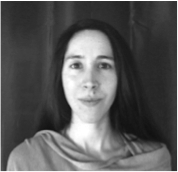 Alejandrina Cristià - CNRS, France
What are the phonetic/phonological representations that infants and adults have? Why and how are they formed? How do they interface with other linguistic levels and other cognitive systems? To answer these questions, I combine multiple methodologies including spoken corpora analyses, behavioral studies, neuroimaging (primarily NIRS)
 Anna M DiSciullo - UQAM, Canada
Full Professor of the Department of Linguistics at the University of Québec at Montréal, she was elected in November 1999 to the Royal Society of Canada, the Académie des lettres et des sciences humaines, in recognition for her research works on natural language asymmetries and their modeling.
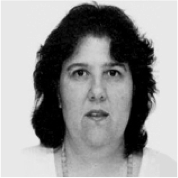 Aniela França - UFRJ, Brazil
Aniela is an Associate Professor of Linguistics and member of the Advanced Neuroscience Program, both at the Federal University of Rio de Janeiro (UFRJ). For her PhD, Aniela wrote the first thesis on Neuroscience of Language in Brazil in 2002, under Prof. Miriam Lemle's supervision. She looked at syntactic configuration yielding different N400 potentials. She did an internship at David Poeppel's Lab at the University of Maryland at College Park and at the Aphasia clinic at Hospital Antonio Pedro, Niteroi. She works mainly with ERP-EEG relative to syntatic, morphological and semantic phenomema. She directs ACESIN lab that has concentrated a good number of master and PhD students that are helping to consolidate the field in Brazil, some of them already professors and post-docs. ACESIN has been making fruitful connections with other labs and her range of research methodologies has expanded to include eyetracking and fMRI.
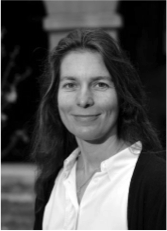 Anne Christophe
ENS - PSL Research University, France
Anne Christophe is Research Director at CNRS as well as director of the Laboratoire de Sciences Cognitives et Psycholinguistique, in Paris (Ecole Normale Supérieure / PSL Research University / EHESS / CNRS). Her research focusses on how young children may bootstrap early lexical and syntactic acquisition by relying on sources of information available early on from the acoustic signal, namely phrasal prosody and function words. She uses experimentation with infants and toddlers as well as computational modelling.  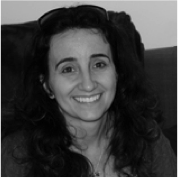 Cilene Rodrigues - PUC-Rio, Brazil
Bachelor in Language and Literature from Universidade of Brasília (1995), master in Formal Linguistics from Universidade of Brasília (1998). PhD in formal linguistics from University of Maryland, College Park (2004). Interests: comparative syntax (recursion, control, null subjects, ellipsis); experimental syntax. Works at PUC-Rio/LAPAL.
 Colin Phillips - University of Maryland, USA
Homepage Colin Phillips is Professor of Linguistics and Distinguished Scholar-Teacher at the University of Maryland, USA, where he also is Director of the Maryland Language Science Center and Associate Director of the Neuroscience and Cognitive Science Program. His research examines the cognitive and neural mechanisms that underlie detailed linguistic representations, and spans linguistics, language acquisition, psycholinguistics, and cognitive neuroscience, with an emphasis on cross-language comparisons.
 Cristina Name - UFJF, Brazil
Cristina Name is Associated Professor at the Federal University of Juiz de Fora and Director of NEALP – Language Acquisition and Psycholinguistics Laboratory - at the same university. Her research focuses on how infants analyze linguistic input and how they abstract grammatical patterns from it. She is interested in prosody and non-adjacent dependencies. A second area of interest is prosodic processing by adults.
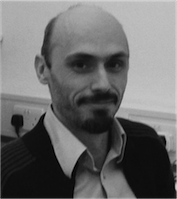 Emmanuel Dupoux
ENS-EHESS-CNRS PSL Research University, France
My research focuses on the mecanisms and representations specific to the human brain that allow the human baby to acquire one or several languages and become cognitively functional in his or her culture. This investigation is conducted using classical techniques in adult processing, newborn studies and brain imagery. I have been focusing on the acquisition of linguistic and social skills in infants. I am also interested in the consequences of early acquisitions in adults, in particular on the more or less reversible specialization of cognitive processes for a particular language or culture. My approach is to run comparative studies in adults and infants, and constrain theories of adult and infant speech processing by proposing theoretical models that take into account both types of studies. Specifically, I am involved in the following three areas:
- Modeling early language acquisition
- Phonological 'deafnesses' in speech perception: acquisition and plasticity
- The development of social cognition.
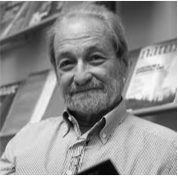 Jacques Mehler - SISSA, Italy
Director of the Language, Cognition and Development Laboratory at the SISSA, Trieste. He completed a Ph.D. in Psychology at Harvard University. His research focuses on the human development of Language and Mind and also on the cerebral bases of Language. He and his colleagues perform investigations on very young infants, bilingual children and adults. In some of their studies they use innovative brain imaging equipment, which is especially well suited for the study of very young babies. Dr. Mehler collaborates with researchers from many disciplines - pediatrics, physics, philosophy, engineering and psychology. This combined expertise makes the team better able to explore and understand, to connect models of cognitive development and neurobiology, and to contribute to pediatric science. (Text informed by the LA school for education cognitive and neural sciences)
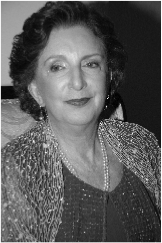 Leonor Scliar-Cabral - UFSC, Brazil
Homepage Prof. Emeritus Leonor Scliar-Cabral, Esso Prize in Literature. Dr. in Linguistics/Psycholinguistics at USP/Brazil. She taught at the School of Medicine of São Paulo and was head of the Graduate Course on Linguistics, PUCC. Full Professor at UFSC. Honorary President of ISAPL and its past President. Past President of ABRALIN (Linguistic Society of Brazil). Researcher at the Brazilian National Council of Research (CNPq). Responsible of the Research Group “Emergent Linguistic Productivity”, which feeds the CHILDES program with Brazilian Portuguese data. Scliar Early Literacy System's author for preventing functional illiteracy.
 Letícia Sicuro Corrêa
PUC-RIO, Brazil
PhD. University of London (LSE), 1986. Senior Associate Professor - Pontifical Catholic University of Rio de Janeiro (PUC-Rio). Head of LAPAL (Laboratório de Psicolinguística e Aquisição da Linguagem) Research program: Reconciling Minimalism, on-line sentence processing and a procedural model of language acquisition.
Research interests: Language acquisition (Bootstrapping syntactic computation; early identification and progressive specification of functional categories); Computational cost in sentence processing; SLI, domain specificity; grammar-pragmatics interface.
 Marcela Peña - PUC, Chile
Marcela Peña is Associated Professor at the Pontificia Universidad Catolica de Chile. Originally she is an MD, Pediatrician and obtained her PhD in Cognitive Science and Psycholinguistic from the École des HautesÉtudes en Sciences Sociales, Paris, France. Her research interest is focused to explore early cognitive development and early learning. Integrating behavioral and neuroimage techniques and methods, she and her team study how the infants and young children learn their native language and develop their mathematical cognition and their symbolic mind. In her studies she includes healthy participants and patients.
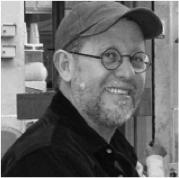 Marcus Maia - UFRJ, Brazil
Marcus Maia obtained his PhD in Linguistics from the University of Southern California in 1994 and was a visiting scholar at the CUNY Graduate Center (2003-2004). He was also a visiting professor in the Department of Languages and Cultures at the University of Massachusetts (2012). He is an Associate Professor of Linguistics at the Federal University of Rio de Janeiro (UFRJ) and is currently Director of the Graduate Program in Linguistics at UFRJ. His main areas of research are Sentence Processing and Experimental Syntax. He has worked on the processing of attachment ambiguities (relative clauses, Prepositional Phrases), argument structure, WH-questions, recursive constructions, anaphoric coreference, morphological computation. Since 2005 he has also been developing experimental field work with speakers of Brazilian indigenous languages. He is also interested in Educational Linguistics and was a consultant and instructor of Linguistics (2000-2008) in a Higher Education Program (UNEMAT/UNESCO) specially designed for indigenous teachers, having published a textbook for use in these programs.
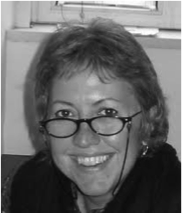 Marina Nespor - SISSA, Italy
Most of my research has focused on the phonological interpretation of syntax, that is, on how the phonological shape of an utterance conveys information about its syntactic structure, the so-called theory of prosodic phonology. The prosodic phonology of language includes segmental rules that apply across words, thus reflecting different degrees of cohesion of the elements of a string, rhythm and intonation. I have been investigating also how prosody can be used in comprehension and during language acquisition. It is plausible, in fact, that those signals that are present in speech to make it comprehensible to listeners, for example by resolving ambiguities, are exploited by infants to acquire the grammar of the language they are exposed to. Since by the time a child starts combining word s/he appears to have learned the appropriate order of words of the language s/he is acquiring, s/he must have understood the main properties of the language of exposure long before then. In order for information about grammar to be available to infants, it must be present in the signal, since infants are not born with knowledge of segmentation or of the words and structures of the language they will eventually speak. It is thus especially perception that must be investigated.   Mary Kato - UNICAMP, Brazil
Retired full professor of the Linguistics Department of UNICAMP (State University of Campinas) , but still acting as a volunteer collaborator in the same institution, she is a CNPq (Conselho Nacional de Pesquisa) researcher, her present research project being on Romance languages in America (Romania Nova) , which she co-coordinates with Francisco Ordonez (SUNY) and Andrés Saab (Conicet-UBA). Her other interests and publications, besides comparative syntax, are historical linguistics and language acquisition (L1 and L2). She is one of the associate editors of DELTA, a Brazilian linguistics journal, of which she was the founder.
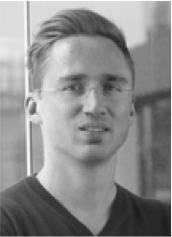 Michael Skeide - Max Plack Institute (MPI CBS), Germany
Michael Skeide is a postdoctoral researcher in the laboratory of Angela D. Friederici working on the behavioral, neural and genetic foundations of normal and impaired language development combining behavioral paradigms with functional and structural magnetic resonance imaging methods and single nucleotide polymorphism data.
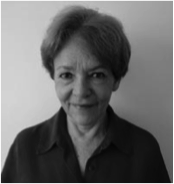 Miriam Lemle - UFRJ, Brazil
Emerit Linguistics Professor at the Federal University of Rio de Janeiro, Miriam Lemle wrote her biography in the 1st person: “I was born in Rome in 1937, to a Jewish family. Miriam Milla was my maiden name. My first language was Italian, and Portuguese came soon after our moving to Brazil in 1939, escaping fascism. A great leap in time: I wanted to study chemistry because I loved those big compound words chemists make up to name their formulae on a fascinating compositional semantics. But since someone told my dad that chemistry was not a very good profession for women, and he believed it, I went to language studies, since dissecting words and sentences into their meaningful pieces is equally amusing. The professor that stimulated me in his classes was Joaquim Mattoso Câmara Junior, who had spent some time at the Museu Nacional looking at Brazilian Indian Languages archives. He proposed to me to study Portuguese Phonology and get myself a family of Indian languages to get acquainted with and work at its genetic sub-classification, which I started doing – with Tupi-Guarani, but not with a big enjoyment. At that time I got a gift from a young American Anthropology student in Brazil. He gave me Chomsky’s Syntactic Structures telling me that everybody was reading that. That book was so incredibly significant to me that since then I started making my way for a scholarship to get an MA in Linguistics, on Generative Grammar. I managed to go to the University of Pennsylvania and ended getting the master Degree with a study on the Phonology of a variety of Portuguese spoken in Rio. In 1968, together with my dear colleague Yonne Leite, I was active in the foundations and teaching activities in our Graduate Program in Linguistics, the first Linguistics Graduate Program in Brazil. My teaching activities were on Generative Grammar, of course. Chomsky’s Aspects, Chomsky and Halle’s Phonology of English, Haj Ross’s Thesis, Katz and Fodor’s Readings in the Philosophy of Language, Reibel and Schanes’ Modern Studies in English, Ray Jackendoff’s Semantic interpretation in Generative Grammar, all further Chomsky’s books, of course, were my spiritual vitamins. However, fortunately, I did not congeal and kept going ahead with Distributed Morphology. I had good luck with many students who wrote their MA Dissertations under my guidance, and a few also their PhD theses, and are now professors in our Graduate Program. Recently my favorite subject matter is verb polissemy, and hopefully a handful of new Dissertations and PhD theses will come out soon."
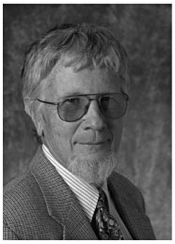 Randy Gallistel - RuCCS, USA
My research pursues a psychophysical approach to screening for memory malfunction in genetically manipulated mice. The purpose is to make possible a genetic attack on the problem of the physical (cellular and molecular) basis of memory by developing behavioral screening methods that distinguish between genetic defects in memory per se and genetic defects in the many processes that affect the extent and manner in which memory is manifest in behavior. Memory is the mechanism or mechanisms that carry information forward in time within nervous systems. My behavioral screens look for distortions and increased noise in simple quantitative memories like interval duration, distance and number. It is psychophysical in character in that it tests memory for the same simple quantity repeatedly (hundreds of times) and processes the results with the kind of elaborate statistical analysis employed in psychophysical work on sensory systems. As in sensory psychophysics, the goal is to extract from behavioral data quantitative properties of the underlying mechanisms. The experimental research grows out of my theoretical research on problem-specific (modular) information processing approaches to learning and memory.
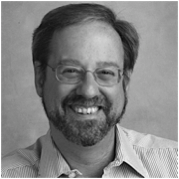 Robert C. Berwick - MIT, USA
Professor Berwick and his research group investigate computation and cognition, including computational models of language acquisition, language processing, and language change, within the context of machine learning, modern grammatical theory, and mathematical models of dynamical systems. A second line of inquiry is probing the biological and evolutionary underpinnings of human language, including models of language change as well as its biologically-grounded evolutionary origins, in particular, in birdsong. Professor Berwick has been the recipient of a John Simon Guggenheim Memorial Award as well as the MIT Edgerton Faculty Achievement Award, MIT’s highest honor for junior faculty. He has also received an NSF Presidential Young Investigator Award. He helped found and run MIT’s Center for Biological and Computational Learning for more than 15 years.
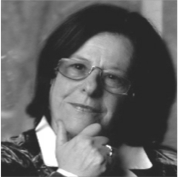 Rochel Gelman - RuCCS, USA
I have developed various ways to uncover and study the ease with which very young children acquire intuitive understandings of natural number and arithmetic, that different sources of energy support the movement and change over time of separately moveable animate and inanimate objects, that outcomes have causes, and the learning of words and conversationally appropriate ways of talking. A second major theme is dedicated to describing the difficulties older humans have learning with understanding about the nature of rational numbers, algebra, mechanics, biology, a second language, and so on. On the theoretical side, my effort is dedicated to developing a theory of learning that accommodates both the early learnings that occur on the fly and the later learnings that require considerable effort, quality inputs, and a protracted period of time.
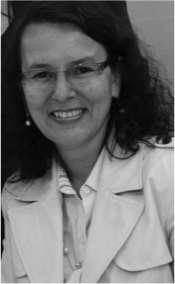 Ronice Quadros - UFSC, Brazil
Ronice Müller de Quadros is a Professor at Universidade Federal de Santa Catarina in Brazilian Sign Language Studies Department. Since, 2004, Dr. Quadros had supervised 27 Master and 9 PhD graduate students in the Linguistics Program as well as in Translation Studies. In both programs, she had been working with sign language acquisition, bilingual studies and linguistic policies related to Brazilian Sign Language and Portuguese. She coordinates the Brazilian Sign Language Corpus in which it has been collected data from different groups of signers in Brazil (www.corpuslibras.ufsc.br). Also, she coordinates the Sign Language Acquisition Center (www.nals.cce.ufsc.br) in which there is a database of different contexts of acquisition with longitudinal and experimental data in monolingual and bilingual contexts. In the last five years, Dr. Quadros had conducted a research in Bimodal Bilingual Development with hearing children of Deaf parents as the principal investigator in Brazil, together with Diane Lillo-Martin from University of Connecticut, the principal investigator in United States, and Deborah Chen-Pichler, from Gallaudet University, this project was supported in part by Award Number R01DC009263 from the National Institutes of Health (National Institute on Deafness and Other Communication Disorders) and awards from the Gallaudet Research Institute and from CNPq (Brazilian National Council of Technological and Scientific Development) Grant #200031/2009-0 and #470111/2007-0. She is currently conducting a research related to Brazilian Sign Language Inventory in Santa Catarina, a documentation of Brazilian Sign Language, that is supported by CNPQ Grant # 303725/2013-3 and # 471355/2013-5.
 Rushen Shi -UQAM, Canada
Rushen Shi works in the psycholinguistic field. She is interested in perceptual capacities of children and the impact of such capacities on grammar development (from birth to the age of 5). Her projects within her research programme focus on these questions: 1. How infants build his mental lexicon?
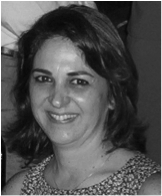 Ruth Lopes - UNICAMP, Brazil
Ruth Lopes is an Associate Professor of Linguistics at the University of Campinas, Brazil. She was a visiting scholar at the University of Maryland at College Park (2001-2002), at the University of Massachusetts at Amherst (2009-2010) and at the University of Chicago (2013-2014). Her research examines the acquisition of syntactic phenomena as well as phenomena at the syntactic-semantic interface. She is also interested on “lower level” ellipsis (VP-ellipsis, gapping, null objects etc), especially in Brazilian Portuguese.
 Thaïs Cristofaro - UFMG, Brazil
I am full Professor of Linguistics at the Federal University of Minas Gerais and The Brazilian National Council for Scientific and Technological Development (CNPq) Fellow Researcher, level 1C . I did my Master in Linguistics at UFMG (1986 ), PhD in Linguistics at the University of London ( 1992) and Post- Doc at the University of Newcastle (2002) and PUCMINAS (2011). I was President of the Brazilian Association of Linguistics - ABRALIN , (2005-2007) and Coordinator of the Research Board in Social Sciences, Humanities and Arts at the Minas Gerais Research 2009-2012) . I am currently a Language representative at CNPq’s Advisory Committee. In my lab (www.letras.ufmg.br/cristofaro), I work with undergraduate and graduate students with training from various fields - Language, Speech Therapy, Psychology, Engineering and others. In partnership with Prof. Hani Camille Yehia, I developed a proposal for an interactive teaching of phonology and phonetics that can be accessed at www.fonologia.org. This project also seeks to document audio samples from different regions of Brazil . My professional experience has multidisciplinary nature, especially linking Theoretical to Applied Linguistics, with emphasis on phonology, speech therapy and speech technology.
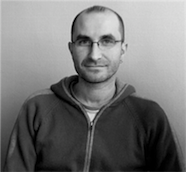 Thierry Nazzi - CNRS, France
Thierry Nazzi is Research Director at CNRS and vice-director of the Laboratoire de Psychologie de la Perception in Paris (Université Paris Descartes/Sorbonne Paris Cité/CNRS). His research focusses on early phonological and lexical acquisition, exploring the mechanisms by which language specific properties change language general mechanisms into language specific capacities. This research combines corpora analyses, behavioral experimentation throughout the lifespan, electrophysiology (ERPs) and brain imaging (NIRS).
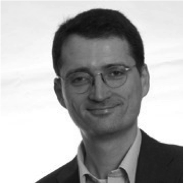 Wolfram Hinzen - ICREA/Universitat de Barcelona
I am a philosopher-linguist with an interest in the cognitive significance of human language, i.e. the impact that language has on cognition and the genesis of our species-specific mind. I am an ICREA research professor based at the Universitat de Barcelona, currently leading a major AHRC-funded project on Language and Mental Health, based in Durham, Newcastle and London. I was also the director of the 'Un-Cartesian Linguistics' project based in Durham from 2009-2012 (see Hinzen & Sheehan, The philosophy of universal grammar, OUP 2013), funded by the AHRC/DFG, and the 'Origin of truth' project, based in Amsterdam (NWO).
|

